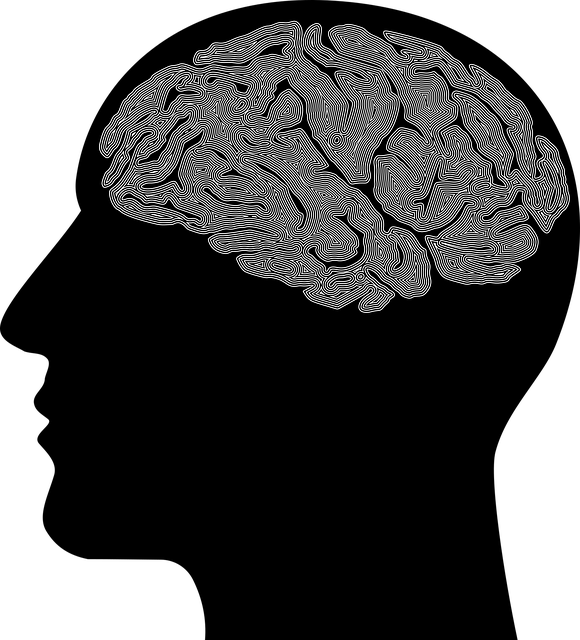Mental health crisis hotlines offer 24/7 Therapy for Crisis Counseling through trained professionals, providing immediate support and guidance during crises. These services prioritize a safe, non-judgmental space for emotional expression, offering coping strategies, resilience building, and access to local mental health resources. Through active listening, empathy, and trauma-informed care, counselors help individuals manage intense feelings, gain perspective, and prevent future mental health episodes, ultimately empowering them with effective long-term coping mechanisms. Reaching out via hotlines is a crucial step towards recovery, fostering better community mental health care.
In today’s fast-paced world, mental health crisis hotline support services play a vital role in assisting individuals navigating intense emotional distress. This article explores the critical functions of these hotlines, highlighting therapy for crisis counseling as a lifesaving resource. We delve into understanding mental health crises, the role of skilled counselors, and accessing these services. Common issues addressed and the training behind crisis counselors round out this comprehensive guide, offering insights into how to recognize and reach out during times of need.
- Understanding Mental Health Crisis Hotlines
- The Role of Crisis Counseling in Therapy
- Accessing Support: How to Reach a Hotline
- Common Issues Addressed by Crisis Services
- Training and Resources for Crisis Counselors
Understanding Mental Health Crisis Hotlines

Mental Health Crisis Hotlines serve as vital resources for individuals experiencing acute emotional distress or a mental health crisis. These 24/7 services offer immediate, confidential support through trained professionals who provide active listening, crisis intervention, and guidance to help individuals navigate their current situation. Therapy for crisis counseling is not merely reactive; it equips callers with coping strategies and tools to better manage future challenges.
Beyond addressing urgent needs, hotlines play a crucial role in connecting people to ongoing mental wellness resources, including Trauma Support Services. They also foster conversations around Mental Wellness Podcast Series Production, leveraging media to disseminate information and share recovery stories. Cultural Sensitivity in Mental Healthcare Practice is paramount, ensuring that hotline operators are trained to understand and respect diverse backgrounds, experiences, and perspectives, thereby creating safer, more inclusive spaces for all individuals seeking help.
The Role of Crisis Counseling in Therapy

Crisis counseling plays a pivotal role in providing immediate support and guidance to individuals facing mental health crises. This specialized service offers a safe space for people to express their emotions, fears, and thoughts without judgment. Through active listening and empathy, crisis counselors help individuals gain perspective, manage intense feelings, and make informed decisions. The goal is not just to stabilize the current situation but also to empower clients with coping strategies for future challenges.
In therapy for crisis counseling, emotional intelligence is a key component. Counselors assist clients in recognizing and understanding their emotions, helping them develop healthier ways of processing and responding to distressing situations. This process fosters resilience and promotes emotional healing processes. Moreover, crisis counseling often serves as a bridge to more long-term mental health support, ensuring individuals have access to the care they need to navigate any ongoing struggles.
Accessing Support: How to Reach a Hotline

Reaching out for support during a mental health crisis is a courageous step. Accessing a hotline is an immediate and confidential way to connect with trained professionals who can provide therapy for crisis counseling. These services are designed to offer emergency assistance, offering a safe space to express your feelings and concerns without judgment.
Several hotlines are available 24/7, ensuring support whenever needed. To access these services, one simply needs to dial the dedicated number or even reach out through online platforms. The process is straightforward, allowing individuals in distress to receive immediate emotional regulation techniques and anxiety relief strategies from qualified counselors. This prompt intervention can make a significant difference in managing acute mental health crises. Moreover, hotlines often serve as valuable resources for advocacy, connecting people with information on local mental health services, policy analysis, and available support networks within the community, ultimately fostering better mental health awareness and care.
Common Issues Addressed by Crisis Services

Mental health crisis hotline support services cater to a wide range of issues, offering immediate assistance and guidance during times of severe emotional distress. Common problems addressed include but are not limited to depression, anxiety disorders, post-traumatic stress disorder (PTSD), suicidal ideation, and substance abuse crises. These hotlines provide a safe space for individuals to share their concerns and receive professional support without the stigma often associated with mental health issues.
Counselors on these hotlines employ various strategies such as empathy building techniques to foster understanding and trust. They offer stress management tools to help individuals cope with overwhelming situations, and some even focus on depression prevention by teaching resilience-building skills and promoting healthy coping mechanisms. Therapy for crisis counseling is designed to be immediate and accessible, ensuring that those in need can receive the support they require promptly.
Training and Resources for Crisis Counselors

Effective crisis counseling requires a unique set of skills and knowledge that goes beyond general therapy for mental health issues. Counselors must be trained to handle acute distress, often in high-pressure situations, while maintaining their own emotional well-being. Many organizations now offer specialized training programs focusing on trauma-informed care, active listening, and de-escalation techniques. These programs equip counselors with the tools needed to support individuals experiencing a mental health crisis, such as suicidal ideation or severe anxiety.
The resources available for crisis counselors also encompass a range of supportive materials like evidence-based practices guides, peer mentoring networks, and continuous professional development opportunities. These include mental wellness coaching programs that delve into topics like building resilience, fostering coping mechanisms, and implementing Mind Over Matter principles to boost confidence in handling challenging cases. Such comprehensive training ensures counselors are well-prepared to provide critical support while adhering to the latest standards in crisis counseling.
Mental health crisis hotline support services play a pivotal role in providing immediate assistance and guidance during moments of severe emotional distress. By offering confidential and accessible resources, these hotlines bridge the gap between crisis and stability. Through trained counselors, individuals receive the necessary tools to navigate challenging situations, fostering resilience and promoting long-term mental well-being. With continuous training and an array of resources, crisis counseling therapies have evolved to effectively address diverse issues, ensuring folks in need can access the support they deserve.









